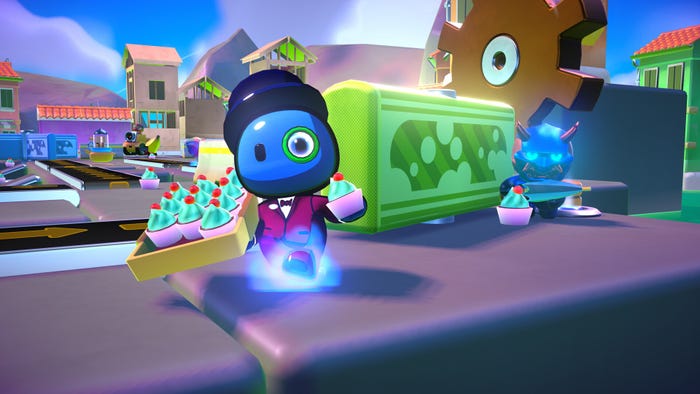In his lecture at the UK Develop Conference, Epic's Mark Rein hectored to game developers: "You need to be able to make a profit out of your development advances", also suggesting that "you have to be prepared to give up your IP rights, even ancillary rig
July 12, 2006

Author: by Jon Jordan, Brighton
Asking Mark Rein to keynote your debut game developers conference on the subject of ‘Avoiding The Pitfalls Of The Next Generation’ could be construed as dropping a hungry fox into a chicken coop. But, despite a pre-speech proposed spread betting scheme on the number of times he would say “buy Unreal Engine 3”, Rein had left his salesman hat at the door. Instead, in a wide ranging speech, he attempted to hack through some of the Gordian knots currently bedevilling the development community. Not surprisingly considering Epic’s reputation as one of the most profitable game and tools developers in the world, the economics of next gen development was Rein’s first target. “A pretty reasonable expectation for a game should be 400,000 sales each on Xbox 360, PlayStation 3 and PC,” he said. In the case of the company’s forthcoming Xbox 360-only Gears of War, he revealed the company was aiming for the equivalent (1.2 million) on the one platform. Of course, as key first party title for Microsoft, Gears of War is hardly a typical example for most developers to base their businesses model on. But while acknowledging both the game’s long gestation (originally monikered as Unreal Warfare, most of the early work was given away in a free Unreal Tournament pack), and Epic’s advantages in terms of cash and tools, Rein still had some strong words. “You need to be able to make a profit out of your development advances, as well as having some royalty back-end, although you shouldn’t rely on it,” he said, suggesting profit of a couple of million on a development budget of $8 million seemed about right. A key ability in this regard, he argued, was not over staffing projects, even when publishers demanded it, as well as maintaining strong control over the decision when prototyping becomes production. “For the majority of Gears’ development, it’s been a 25 man team,” he boasted. “We’re borrowing more staff from the Unreal Tournament 2007 team at the moment, but for long periods of time, there were only 10 people working on it.” He addressed the much discussed topic of intellectual property rights in typically blunt style. “You have to be prepared to give up your IP rights, even ancillary rights,” he said, although not directly commenting on the ownership of Gears of Wars. “It’s not worth taking a bad deal and keeping the IP. Execution is a more important skill than coming up with ideas. When your track record is solid enough, you’ll get the chance to pick up the ancillary rights.” Next up was episodic games; something Rein described with the word, ‘insane’. “There’s a lot of talk but very little success,” he argued. “Half-Life is a great example, but you’re not going to be able to compete with it.” And even even this case, he said Half-Life 1 had sold more than Half-Life 2 and he’d guarantee it sold more than Half-Life 3 would. His main gripe however was the broken nature of a episodic business model, which relies on a $20 price point and a gap of months between the release of episodes. “The business model is upside-down,” he railed. “You’re charging $20 for a third of a game and the only way to get the development time between episodes down from six months is to recycle content, so people will find themselves wandering around the same environments.” This stirred up comment from members of the audience, during an opportunity for questions, with suggestions that Rein’s view was myopic, being too focused on the kinds of game Epic makes rather than casual games, but he was haven’t none of it. Indeed, such baiting only seemed to encourage him as he built up to his piece de resistance - a diatribe about how Intel is killing PC games, thanks to the dominance of its integrated graphics chips, which can’t run high-end games. “We can just about downsize Gears of War so it works on an Nvidia Series 6 or ATi X1300, but there’s no way we can get it to work on integrated graphics,” Rein said. And with the proportion of newly bought PCs now being laptops, which can’t be upgraded in terms of their graphics, Rein said he thought there was the potential for a catastrophic failure of the PC gaming market. “The high end is becoming ever higher, but developers need to expand the market,” he said. “Some publishers are looking to exit the PC business. When we get MMOGs on consoles, it could be the nail in the coffin of PC gaming.” But ever the evangelist, Rein isn’t prepared to give up on PCs just yet. “Maybe we deserve for PC games to die, but I’m going to keep fighting, even if you [referring to the audience] have already given up,” he exclaimed.
You May Also Like






